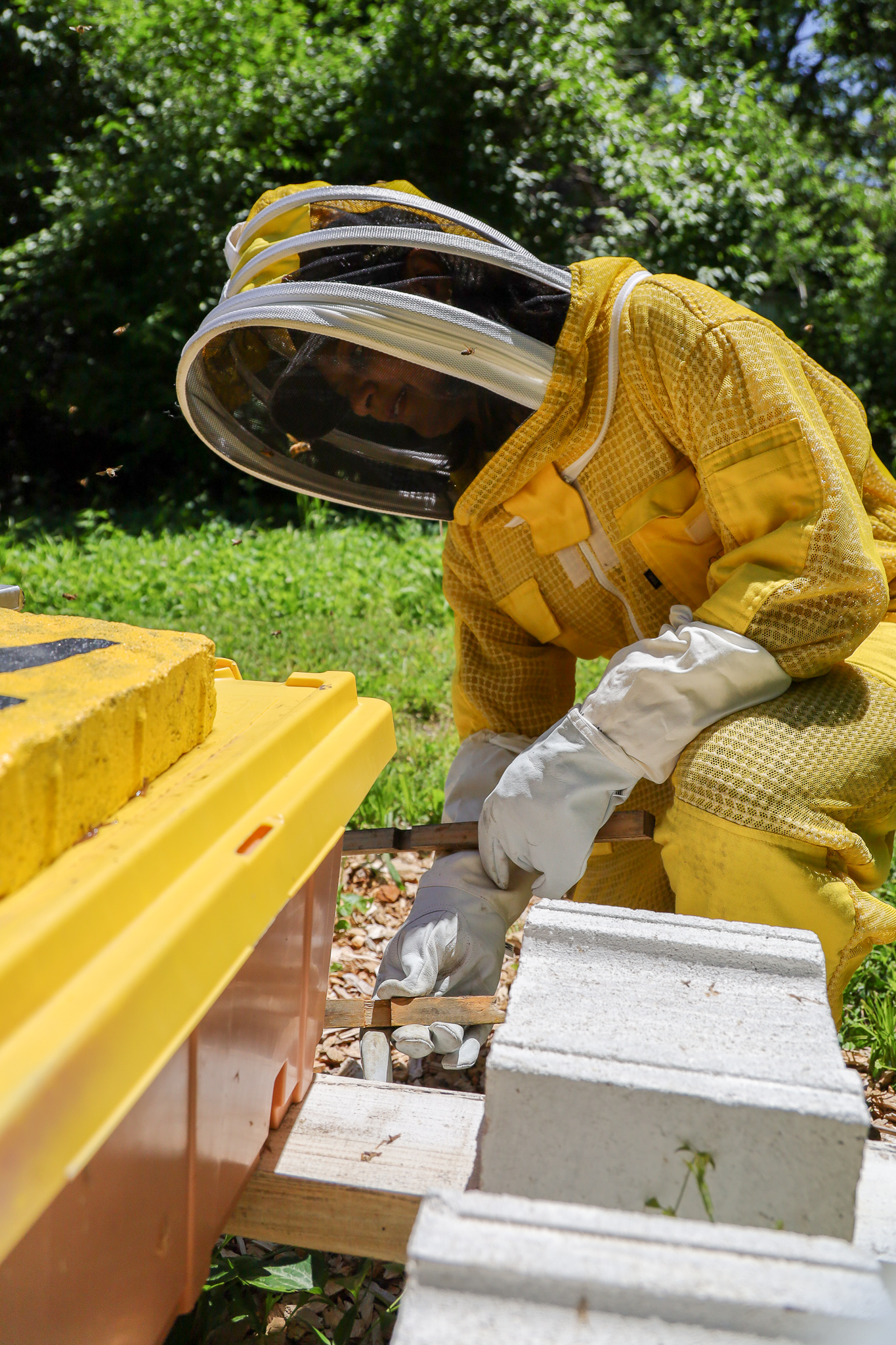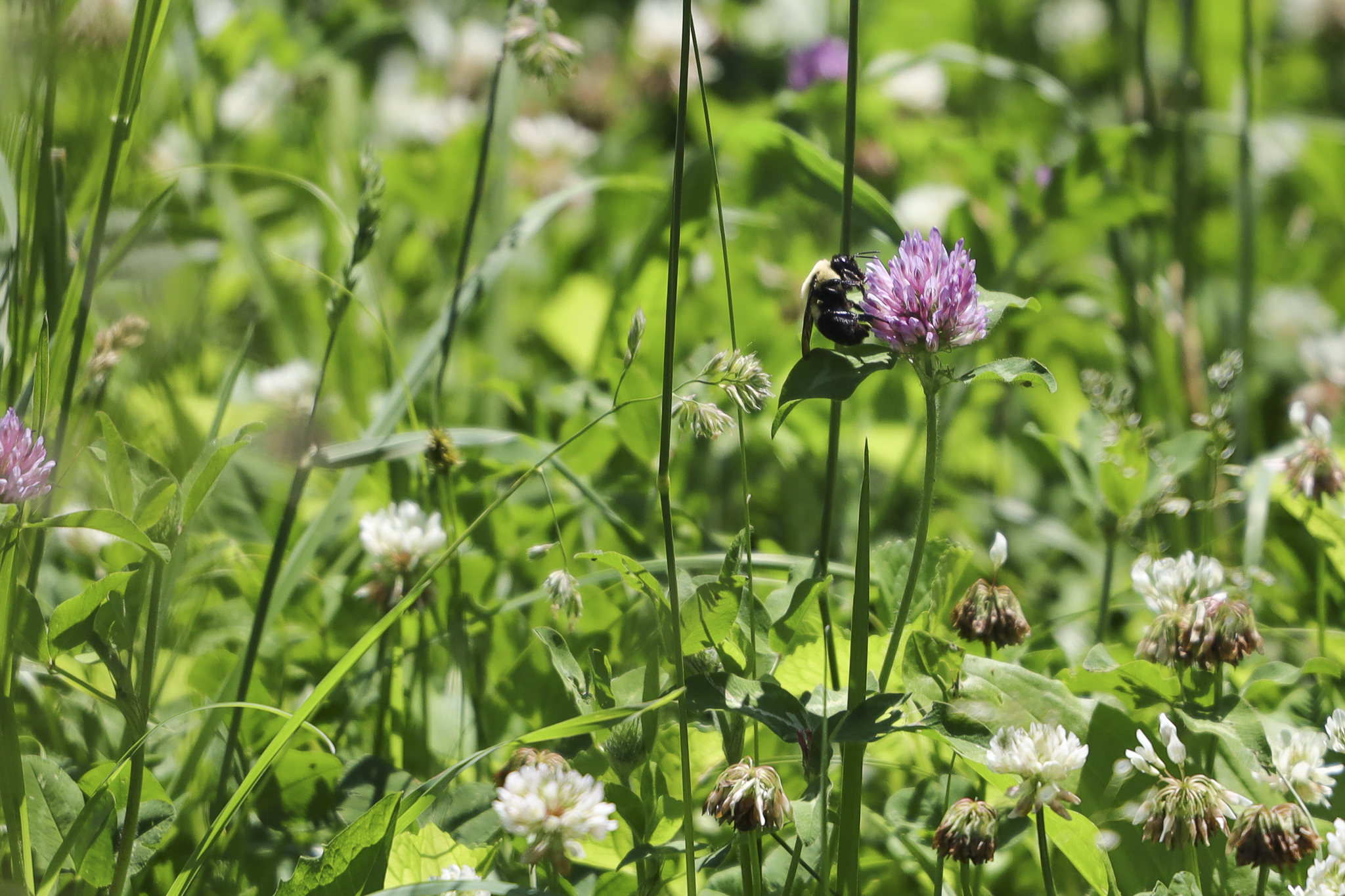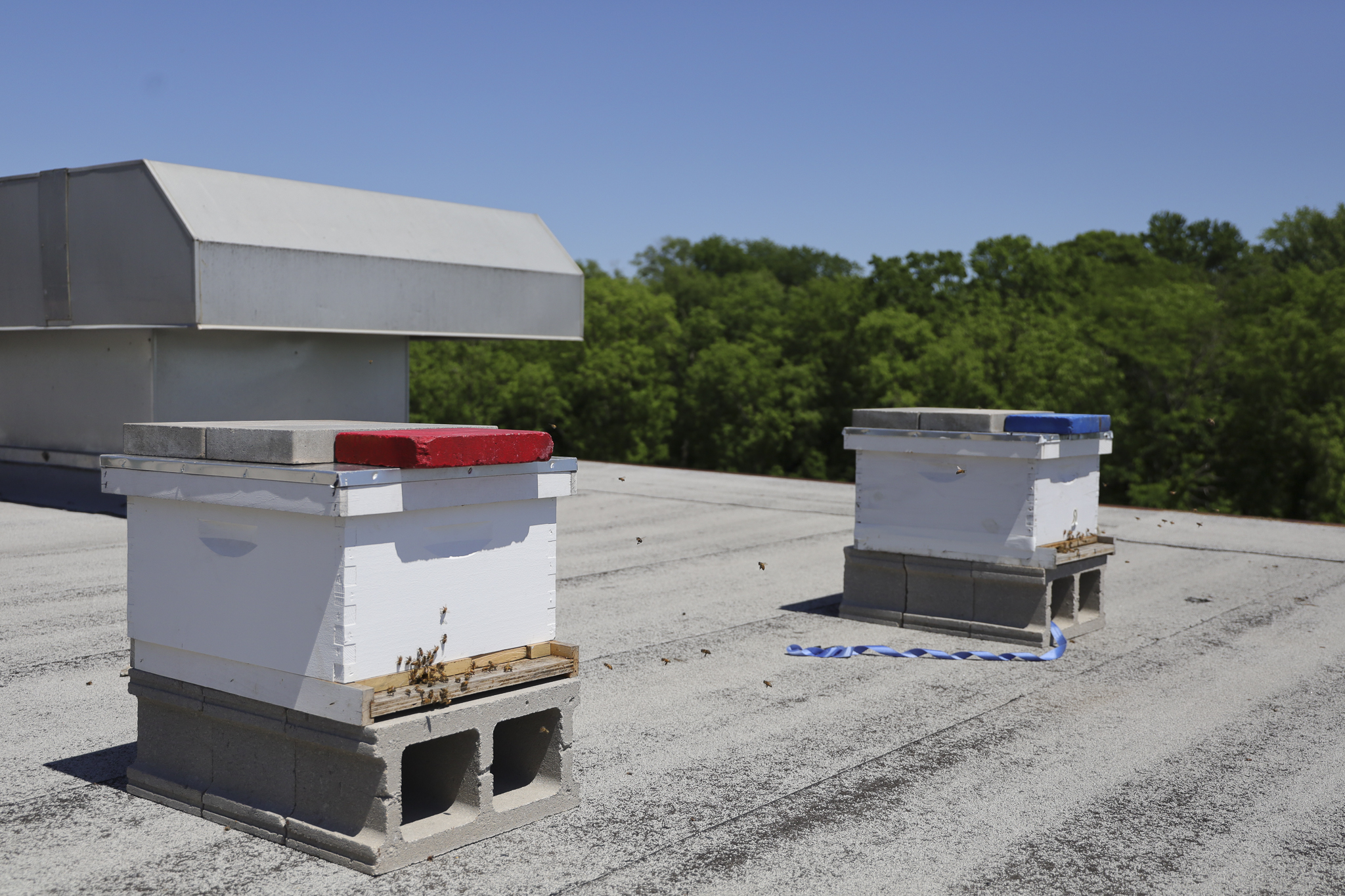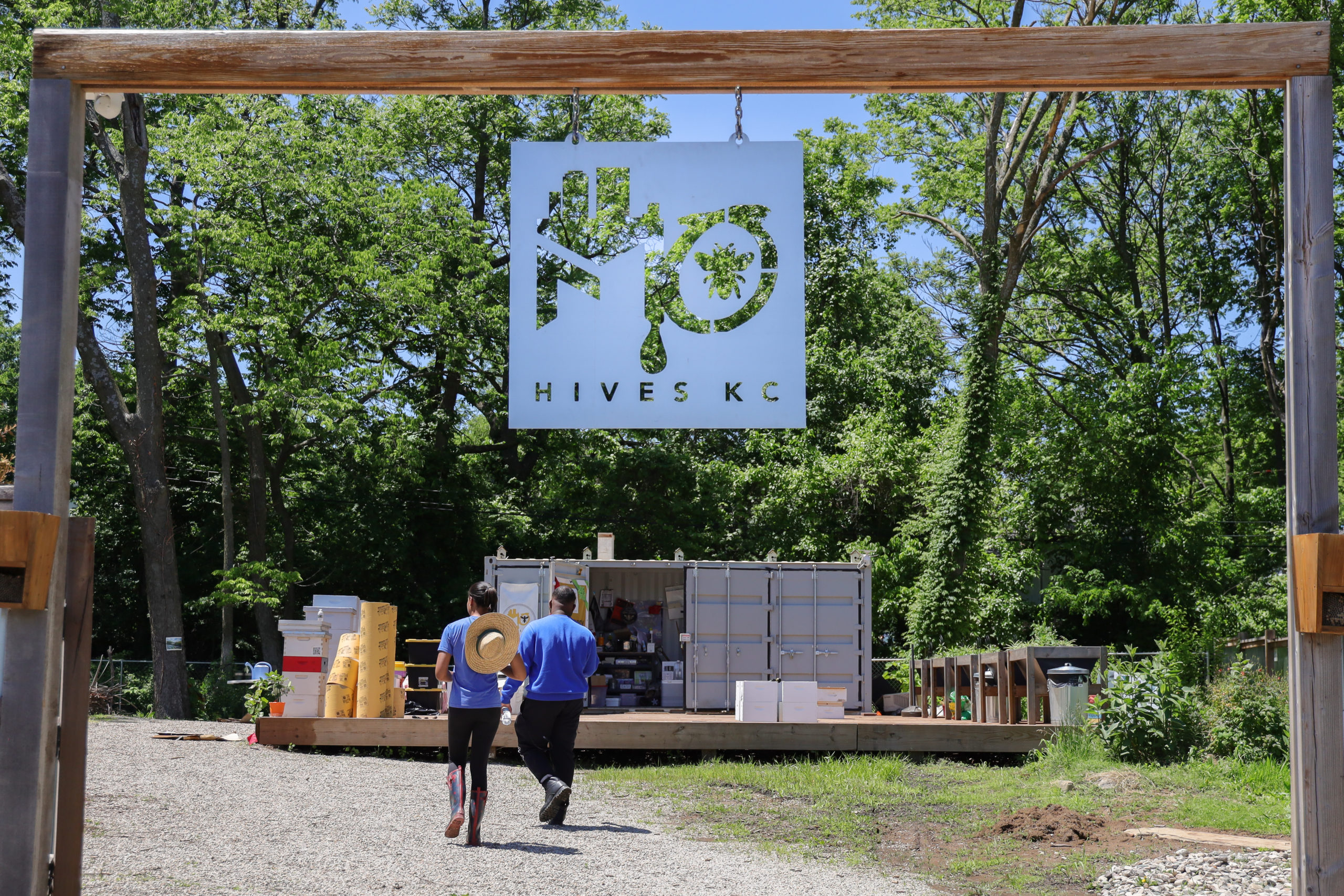Kansas City— Just a few years ago, Marion Pierson was a pediatrician, and afraid of bees. Today, she’s the founder and director of Mo Hives KC. Mo Hives, which launched in 2020, is a non-profit urban focused organization that will be expanding to Springfield, St. Louis and Jefferson City this summer.
“I had never even taken a beekeeping course, I’m afraid of bugs,” Pierson said. “In December 2019 I took my first beekeeping class, and I was hooked.”
Less than three years later and Pierson seems to have overcome her fears. Mo Hives currently has over one million bees across several Kansas City locations and a small location at Gov. Mike Parson’s residence.

Mo Hives focuses on reclaiming unused lots in urban centers and turning those lots into community spaces with plenty of pollinators. Mo Hives KC’s biggest apiary, or space where beehives are kept, is located in the Blue Hills neighborhood and houses about half a million bees as well as native plant life.
Not all of Mo Hives’ apiaries are fully developed community spaces. The organization focuses on using blighted property as quickly and efficiently as possible. By filling up abandoned lots, Mo Hives can provide safe spaces that increase curb appeal in underserved communities.
“It’s about beautification … We need to beautify the flowering trees and bushes and grasses,” Pierson said. “Not everything will be the flagship. But, our model will be: ‘let’s clean it up.'”
“We’ll put some good healthy wildflowers and natives. And plunk a couple little wooden hives there. You’d be surprised how unattractive 50,000 stinging bees are for people who want to do nefarious things,” she added.

For Pierson, connecting urban kids with nature is a way to show them additional options. Many people in underserved communities, facing the pressures of disenfranchisement, turn to drugs and crime, Pierson wants to change that.
“I believe people are not born to, to join gangs or become criminals. People end up doing things that are unwanted. Because they feel like they don’t have options. You come from really critical situations that just leave you without a lot of options, and then you get into stuff like that,” Pierson said.
“Well, what do we think we do? We provide options, we provide opportunities, and kids can learn a different path… I’m not here to be the crime solver, that’s not what I do. But if I can tell somebody that people care about your block — that changes things.”
Pierson’s nephew, Cameron Milton, switched his major from psychology to agriculture after helping out at Mo Hives KC during the COVID-19 pandemic. Pierson sees the potential for kids in urban areas to explore agriculture and bring diversity to a field that has historically been dominated by white citizens from rural areas.

“We have all these partitions, urban, rural, conservative, liberal. There’s no partitions in the water, we all gotta drink the water,” Pierson said. “Bringing another set of voices to the conservation conversation is really what it’s about. I think urban dwellers in Kansas City, from this Mo Hives experience, we’re finding that Black and Brown people want to be involved.”
Beekeeping is a white dominated profession in America. The percentage of beekeepers that are white and male peaked at nearly 90% in the early 2000s, according to the National Library of Medicine. While the beekeeping industry has diversified since then, it is still mostly white.
Beekeeping generates significant revenue in the U.S. with a market size of $645 million in 2022 according to IBIS World. By providing beekeeping training, Mo Hives hopes to increase the amount of money minority populations from urban centers can make off of the industry.
In Pierson’s view, giving people in underserved communities the skills to keep bees and grow food will go a long way in overcoming food deserts.
Food deserts are a phenomenon found almost entirely within inner cities. Food deserts are described as “geographic areas where residents’ access to affordable, healthy food options is restricted or nonexistent due to the absence of grocery stores within convenient traveling distance,” according to Foodispower.org.
“People think the chain starts at the grocery store—it does not. If you don’t know about pollinators, you can’t ever help yourself through your food desert situation,” Pierson said. “Food sovereignty, food security, you’re not going to be able to be a helper in that solution if you don’t even know that the food chain starts here.”

For her work, Pierson was selected for a Women of Achievement award from Lt. Gov. Mike Kehoe. Her work and the quick ascension of Mo Hives to a state-wide program have impressed both Missouri lawmakers and her staff at Mo Hives.
“Dr. Pierson is a really, really impressive person,” Brett Creason, site coordinator at Mo Hives said. “She cares immensely about this.”
Featured Image: Bees fly into a hive at Mo Hives KC’s main apiary in the Blue Hills neighborhood in Kansas City on May 27. The main apiary has ten hives and houses about a half a million bees. (Christopher Yalung, The Missouri Times)
























